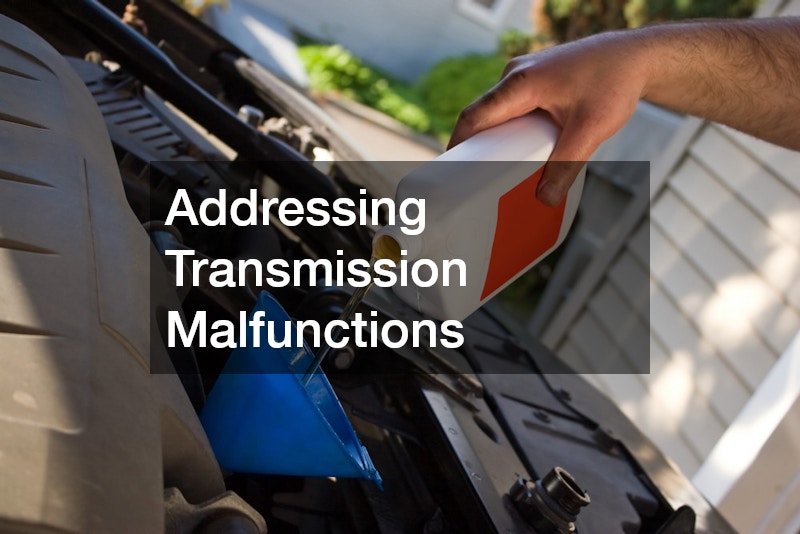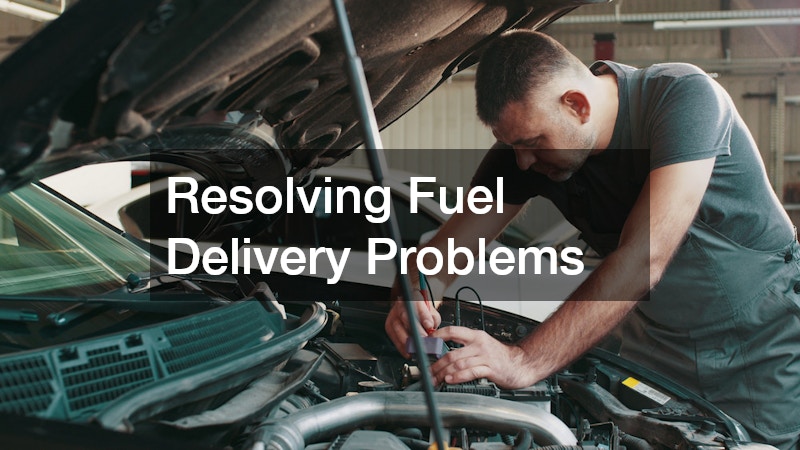Owning and operating a truck comes with many responsibilities, from routine maintenance to unexpected breakdowns. Whether you use your vehicle for work or personal transportation, truck problems can interrupt your plans and create costly delays. Understanding the most common issues and how to address them will help keep your truck reliable, safe, and efficient. A proactive approach can also extend the life of your vehicle, reducing the frequency of repairs and giving you greater peace of mind on the road. By knowing what to look for and acting quickly when something seems off, you can avoid many headaches that often come with truck ownership.
In addition to saving money, early detection and maintenance help preserve your truck’s performance and protect you from dangerous situations on the road. Small truck problems—like a faint rattle, a slight pull in the steering, or a minor drop in fuel efficiency—can be warning signs of larger issues. Investigating and resolving these early can prevent breakdowns at inconvenient times, such as during long hauls or in remote locations. This combination of awareness and action forms the foundation for long-term truck reliability.
Identifying Engine Overheating Causes

One of the most frequent problems drivers face is engine overheating. This issue can be caused by several factors, such as low coolant levels, a faulty thermostat, or a malfunctioning water pump. If ignored, overheating can result in serious engine damage and expensive repairs. Proper maintenance of the cooling system can significantly reduce the likelihood of overheating. By addressing issues promptly, you’ll help ensure your truck performs well under various driving conditions, from city streets to long-haul routes.
More specifically, some drivers discover that their truck repairs bill skyrockets because they waited too long to address signs of overheating. For example, a small leak in the radiator can quickly escalate into a complete engine failure if the truck is driven while overheating. In hot weather or when hauling heavy loads, it’s especially important to monitor your temperature gauge and pull over if you notice it rising. Promptly fixing coolant leaks, replacing worn belts, and servicing the radiator are practical steps that can prevent minor cooling system issues from becoming major problems.
Troubleshooting Brake Performance Issues
Brakes are critical to your safety and should never be taken lightly when it comes to truck problems. Common brake-related issues include worn brake pads, warped rotors, or air in the brake lines. Neglecting brake maintenance can not only lead to expensive repairs but also create dangerous driving conditions. Regular inspections, especially before long trips or after heavy use, help ensure that your brakes will perform when you need them most. Replacing brake components at the first sign of trouble will also help prevent damage to other parts of the braking system.
For instance, many auto repair shops see cases where truck owners ignore early signs like squeaking or grinding noises. Over time, this can cause additional damage to rotors and calipers, increasing both the cost and downtime of repairs. If you notice your truck pulling to one side when braking, or if the pedal feels soft, it’s crucial to have the system inspected immediately. Replacing brake pads, flushing brake fluid, and ensuring proper alignment are all effective ways to restore braking performance and keep you safe on the road.
Addressing Transmission Malfunctions

Transmission issues are among the most serious truck problems, as they can affect your ability to change gears smoothly and maintain control of your vehicle. Common causes include low or contaminated transmission fluid, worn clutches, or internal mechanical failures. Because the transmission is such a critical and complex component, even small issues can quickly escalate into costly repairs if ignored. Regularly checking and changing your transmission fluid, as well as addressing any unusual noises or shifting delays, can help prevent larger breakdowns.
On a more specific level, some truck owners have discovered that postponing crankshaft repair or transmission servicing leads to complete transmission failure. This type of repair not only takes significant time but can also leave your truck off the road for days or even weeks. If you experience gear slipping, delayed engagement, or burning smells, it’s important to have your transmission inspected immediately. Addressing these symptoms early can prevent the need for a full rebuild and ensure your truck remains dependable for daily use.
Fixing Electrical System Failures
Electrical issues can cause a variety of truck problems, ranging from malfunctioning lights to dead batteries and non-responsive starters. Because modern trucks rely heavily on electronics for everything from engine management to driver assistance features, an electrical failure can leave you stranded or unable to operate your vehicle properly. Regular inspections of wiring, fuses, and battery terminals can help identify problems before they worsen. Ensuring that your truck’s electrical system is well-maintained will keep essential components functioning as they should.
Specifically, faulty wiring or worn-out components can lead to bigger repair bills and downtime if ignored. For example, failing to replace worn connectors can cause systems like your lighting or ignition to fail unexpectedly. In some cases, replacing simple parts like golf cart parts—which often share functional similarities with smaller truck components—can serve as an affordable fix for certain auxiliary systems. Regular testing of your alternator, battery health checks, and promptly replacing damaged wiring are simple steps that can prevent frustrating and costly electrical failures.
Resolving Fuel Delivery Problems

When your truck struggles to start, runs rough, or loses power while driving, fuel delivery issues could be the culprit. Common causes of these truck problems include clogged fuel filters, failing fuel pumps, or contaminated fuel. Poor fuel delivery can reduce engine efficiency and performance, and over time, it can cause more serious damage to your engine. Routine maintenance is key to preventing these issues.
In more specific cases, problems arise when debris in the fuel system restricts flow to the engine. If left unaddressed, this can cause stalling, hesitation, and even permanent damage to fuel injectors. Even something as simple as running out of fuel repeatedly can strain the system. Interestingly, vehicles like golf carts face similar challenges with fuel delivery systems, making preventative maintenance an important practice across different types of vehicles. Checking for leaks, keeping the tank clean, and replacing worn fuel lines are all cost-effective ways to ensure your truck receives the fuel it needs to run efficiently.
Repairing Suspension and Steering Concerns
A truck’s suspension and steering systems are essential for stability, handling, and overall ride comfort. When these components wear out or fail, they can create serious safety hazards and lead to other costly truck problems. Common issues include worn shocks, damaged tie rods, or misaligned wheels, all of which can affect steering precision and tire longevity. Regular inspections, especially after driving on rough terrain or carrying heavy loads, help ensure these systems remain in good working order.
More specifically, trucks used frequently in an RV park environment often endure uneven terrain and heavier loads, which can put additional strain on suspension and steering parts. Signs such as uneven tire wear, drifting while driving, or excessive bouncing after hitting a bump are clear indicators that repairs may be needed. Replacing worn components, realigning the wheels, and lubricating moving parts are effective ways to restore smooth handling and maintain safe driving performance.
Managing Tire Wear and Blowouts

Tires are one of the most critical safety components on any vehicle. Uneven wear, low tread depth, and improper inflation can lead to poor traction, reduced fuel efficiency, and even blowouts while driving. Regular tire maintenance, including rotation, balancing, and alignment, is essential for extending tire life and preventing accidents. Checking tire pressure frequently ensures optimal performance in all weather conditions.
Specifically, neglecting tire maintenance can lead to situations where damage spreads to other vehicle parts, increasing repair costs. While it might seem unrelated, even a windshield replacement may become necessary after debris from a tire blowout damages your truck’s glass. Preventing blowouts through consistent inspections, replacing worn tires before they fail, and adjusting air pressure for seasonal changes can help keep your truck safe and road-ready.
Handling Exhaust System Troubles
A truck’s exhaust system plays a key role in reducing emissions, improving fuel efficiency, and maintaining proper engine performance. When exhaust problems develop—such as leaks, rusted pipes, or a failing catalytic converter—they can lead to reduced power, increased fuel consumption, and potentially harmful fumes entering the cabin. Regular inspections and early repairs can help you avoid more serious truck problems down the line.
In more specific cases, an exhaust leak can be noisy, harmful to the environment, and dangerous to your health if fumes enter the cab. For businesses involved in parking lot maintenance, operating trucks with a faulty exhaust system can also create compliance issues with emissions regulations. Replacing rusted components, sealing leaks, and ensuring the catalytic converter is functioning properly are all important steps in keeping your truck efficient, safe, and environmentally responsible.
Preventing Cooling System Breakdowns
Your truck’s cooling system is responsible for regulating engine temperature, and when it fails, it can cause severe truck problems in a short amount of time. Common causes of breakdowns include leaks, worn hoses, a faulty water pump, or a failing thermostat. Preventive maintenance—such as checking coolant levels, inspecting hoses, and flushing the system at recommended intervals—can help keep the cooling system operating efficiently.
More specifically, neglecting basic cooling system care can result in overheating, which can damage engine components beyond repair. For example, a weak golf cart battery and a truck’s cooling system may seem unrelated, but both rely on consistent maintenance to prevent unexpected downtime. Replacing worn radiator hoses, keeping coolant fresh, and inspecting the radiator for blockages are simple steps that can prevent expensive and time-consuming repairs.
Maintaining Optimal Battery Performance
A reliable battery is essential for starting your truck and powering electrical systems, especially in extreme weather. Battery-related truck problems often stem from corrosion on the terminals, low charge, or an aging battery that no longer holds power. Routine checks for corrosion, ensuring a secure connection, and replacing the battery when it nears the end of its lifespan will help maintain consistent performance.
On a more specific note, calling for towing services due to a dead battery is both inconvenient and preventable. Monitoring your battery’s health, testing its voltage periodically, and replacing it before it fails can save you from roadside breakdowns. Additionally, keeping jumper cables or a portable jump starter in your truck adds a layer of preparedness for unexpected situations.
Regular battery maintenance isn’t just about avoiding breakdowns—it also helps protect other electrical components from strain. When a battery struggles to hold a charge, systems like the starter motor and alternator must work harder, which can lead to premature wear. By keeping the battery in top condition, you ensure that these supporting systems operate efficiently and last longer.
Keeping Your Truck Reliable for the Long Haul
Dealing with truck problems can be frustrating, but with the right knowledge and a proactive maintenance routine, you can prevent many of the most common issues. From overheating engines to worn suspension components, each system in your truck plays a role in overall performance, safety, and reliability. Addressing problems early not only saves money but also extends the life of your vehicle, ensuring it’s ready for both work and leisure.
By combining routine inspections with timely repairs, you reduce the risk of breakdowns and keep your truck operating at its best. Whether you’re handling repairs yourself or working with professionals, staying on top of maintenance is the key to avoiding costly downtime. With these strategies in place, your truck will remain dependable for years to come—ready to handle whatever the road throws your way.
In the end, your truck’s dependability comes down to how well you care for it. Consistent maintenance, prompt repairs, and a commitment to checking each system regularly will keep small issues from becoming major headaches. By staying attentive to the warning signs of potential failures, you can enjoy smoother drives, lower repair costs, and greater confidence behind the wheel. Over time, these habits will not only protect your investment but also help you avoid many of the most common and costly truck problems altogether.


